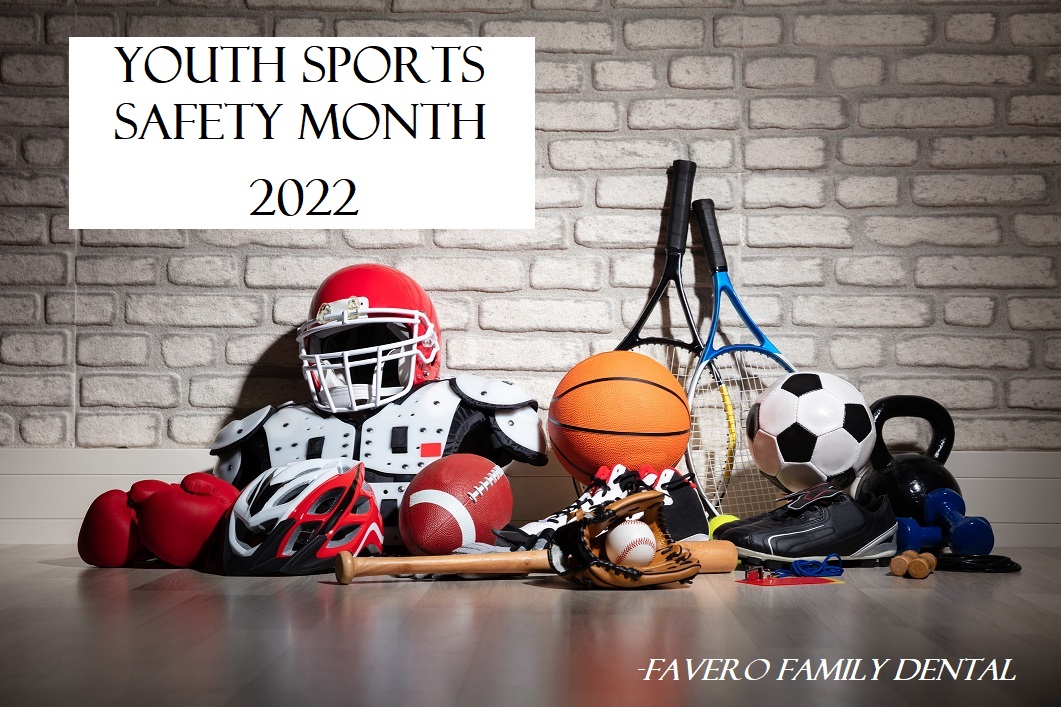
Common Sports Related Tooth Injuries
Getting hurt as an athlete is no longer a rite of passage. As we’ve become aware that sports injuries lead to serious long-term health issues, we hope the command to “buck up” and “get back in the game” is a thing of the past.
As it is for physical and mental health, maintaining oral health as an athlete is essential. While modern dentistry can now repair most tooth injuries sustained while playing a sport, the toll certain oral injuries take on athletes can be traumatic.
According to the American Dental Assistants’ Association, approximately 15 million Americans experience some type of sports-related dental injury each year. About 10 percent of players will end up with a dental or facial injury in any given athletic season.
The 3 top dental injuries are:
- Cracked Teeth
- Fractured Root
- Tooth Intrusion
Cracked Teeth
When an athlete takes a blow to the face, it could result in a cracked or fractured tooth.
If a tooth shows longitudinal cracks or cracks that appear across the tooth, it might only have what dental professionals call “crazy lines.” These are superficial cracks in the enamel and aren’t high risk for dental health.
However, if a tooth’s crack or split begins at the tooth’s crown and extends downward, it is a cracked tooth. Some symptoms you might experience are:
- Sharp pain when you bite down
- Tooth pain that comes and goes but isn’t always present
- Pain while eating and drinking, especially when you consume hot or cold foods
- The loss of a section of the tooth’s outer enamel shell can expose the subsequent layers of your tooth
The layers below the enamel are a hard layer called the dentin followed by soft tissue known as the pulp (the location of your tooth’s nerves and blood vessels). Because a cracked tooth isn’t always visible, you might have one and not experience any pain. Only during your next dental checkup will the damage be discovered. (Another reason regular dental visits are important.)
Your dentist will help you determine what type of fracture you have and what course of treatment would be best for you.
Fractured Roots
If an athlete receives a blow at a certain angle, it might cause a fractured root. Instead of a crack starting at the top of the chewing surface and moving to the root, a fractured root begins at the root level and works its way to the tooth’s visible surface.
Because these fractures are often invisible, you might only discover the problem when an infection develops. The severity of this type of tooth injury depends on the location of the fracture along the root.
The sooner a patient with a root fracture receives root canal therapy (also known as endodontic treatment) to prevent infection in the pulp, the less likely they are to experience tooth loss.
Tooth Intrusion
Sports injuries are usually associated with teeth getting knocked out, but some injuries can drive teeth back into the jawbone.
This type of trauma is called an intrusion. It’s more common in “baby teeth” because a child’s bones – which hold the tooth sockets – are not as hard as an adult’s. However, it can happen to athletes of all ages, and tooth trauma healing time can put you out of action for a long time.
Some of the complications arising from tooth intrusion include:
- Destruction of tooth pulp, either by it “dying” or being damaged beyond recover during the injury incident
- Root resorption, a shortening of the roots
- Ankylosis, the fusion of the injured tooth’s root to the alveolar bone
How Can I protect My Teeth While Playing Sports?
An ounce or more of prevention is worth it when it involves protecting your jaw and teeth. The cost of replacing a lost tooth is about 20 times more than the price of a custom-fitted mouthgaurd.
Mouthguards are the best way to protect your teeth and mouth. they cover the upper teeth but are also a great way to protect the soft tissues of your cheeks, tongue and lips. That means they provide a cushion to any blows your face or teeth may experience, preventing broken teeth, as well as any injuries to your lips, tongue or jaw.
Choosing a Mouthguard For You
- Custom-made mouthguards. Your dentist will make this in a dental lab. It’s specifically designed for your mouth by using an impression of your teeth. From there, the mouthguard is crafted to fit over the impression.
- Boil-and-bite mouthguards. This type of guard is precisely as it sounds. Boil a preformed piece of plastic and then bite into it for a customized fit. You can find the boil-and-bite mouthguards at most sporting goods stores or drugstores.
- Stock mouthguards. This variety is ready to wear right out of the package. Though it’s inexpensive, it might not fit very well nor be comfortable.
Caring For Your Mouthguard
Like your teeth, your mouthguard also needs to be taken care of and regularly cleaned. Here are some things to consider about your mouthguard:
- Clean it before and after every use with toothpaste and a toothbrush
- Store it in a sturdy container that has vents to keep bacteria from growing
- Check for signs of wear and tear and replace it as needed
- Keep your mouthguard away from pets who might mistake it for a chew toy
- Store your mouthguard in a cool place, not in the sun (such as the dashboard of your car)
- Bring it to your regular dental check-ups for evaluation
While your favorite sport may keep you healthy and fulfilled, they can also injure your teeth. But the good news is that with the help of a good mouthguard, you can keep your teeth safe and prevent tooth injuries. So don’t take any chances before engaging in any sport, and keep your valuable teeth protected at all costs.
Leave a reply →